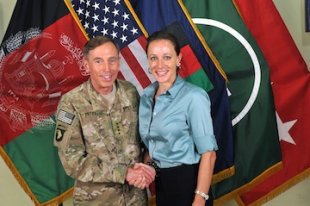FRESNO, Calif. (AP) — Want to avoid pesticides and antibiotics in your produce, meat, and dairy foods? Prefer to pay more to make sure farm animals were treated humanely, farmworkers got their lunch breaks, bees or birds were protected by the farmer and that ranchers didn't kill predators?
Food labels claim to certify a wide array of sustainable practices. Hundreds of so-called eco-labels have cropped up in recent years, with more introduced every month — and consumers are willing to pay extra for products that feature them.
While eco-labels can play a vital role, experts say their rapid proliferation and lack of oversight or clear standards have confused both consumers and producers.
"Hundreds of eco labels exist on all kinds of products, and there is the potential for companies and producers to make false claims," said Shana Starobin, a food label expert at Duke University's Nicholas School of the Environment.
Eco-labels have multiplied in recent years in response to rising consumer demand for more information about products and increased attention to animal and farmworker welfare, personal health, and the effects of conventional farming on the environment.
"Credible labels can be very helpful in helping people get to what they want to get to and pay more for something they really care about," said Urvashi Rangan, director of consumer safety at Consumer Reports. "The labels are a way to bring the bottom up and force whole industries to improve their practices."
The problem, Rangan and other said, is that few standards, little oversight and a lot of misinformation exist for the growing array of labels.
Some labels, such as the USDA organic certification, have standards set by the federal government to which third party certifiers must adhere. Some involve non-government standards and third-party certification, and may include site visits from independent auditors who evaluate whether a given farm or company has earned the label.
But other labels have little or no standards, or are certified by unknown organizations or by self-interested industry groups. Many labels lack any oversight.
And the problem is global, because California's products get sold overseas and fruits and vegetables from Europe or Mexico with their own eco-labels make it onto U.S. plates.
The sheer number of labels and the lack of oversight create a credibility problem and risk rendering all labels meaningless and diluting demand for sustainably produced goods, Rangan said.
Daniel Mourad of Fresno, a young professional who likes to cook and often shops for groceries at Whole Foods, said he tends to be wary of judging products just by the labels — though sustainable practices are important to him.
"Labels have really confused the public. Some have good intentions, but I don't know if they're really helpful," Mourad said. "Organic may come from Chile, but what does it mean if it's coming from 6,000 miles away? Some local farmers may not be able to afford a label."
In California, voters this week rejected a ballot measure that would have required labels on foods containing genetically modified ingredients.
Farmers like Gena Nonini in Fresno County say labels distinguish them from the competition. Nonini's 100-acre Marian Farms, which grows grapes, almonds, citrus and vegetables, is certified biodynamic and organic, and her raisins are certified kosher.
"For me, the certification is one way of educating people," Nonini said. "It opens a venue to tell a story and to set yourself apart from other farmers out there."
But other farmers say they are reluctant to spend money on yet another certification process or to clutter their product with too much packaging and information.
"I think if we keep adding all these new labels, it tends to be a pile of confusion," said Tom Willey of TD Willey Farms in Madera, Calif. His 75-acre farm, which grows more than 40 different vegetable crops, carries USDA organic certification, but no other labels.
The proliferation of labels, Willey said, is a poor substitute for "people being intimate with the farmers who grow their food." Instead of seeking out more labels, he said, consumers should visit a farmers' market or a farm, and talk directly to the grower.
Since that's still impossible for many urbanites, Consumer Reports has developed a rating system, a database and a web site for evaluating environmental and food labels — one of several such guides that have popped up recently to help consumers.
The guides show that labels such as "natural" and "free range" carry little meaning, because they lack clear standards or a verification system.
Despite this, consumers are willing to pay more for "free range" eggs and poultry, and studies show they value "natural" over "organic," which is governed by lengthy federal regulations.
But some consumers and watchdog groups are becoming more vigilant.
In October, the Animal Legal Defense Fund filed a lawsuit against Petaluma, Calif., organic egg producer of Judy's Eggs over "free range" claims. The company's packaging depicts a hen ranging on green grass, and the inside reads "these hens are raised in wide open spaces in Sonoma Valley..."
Aerial photos of the farm suggest the chickens actually live in factory-style sheds, according to the lawsuit. Judy and Steve Mahrt, owners of Petaluma Farms, said in a statement that the suit is "frivolous, unfair and untrue," but they did not comment on the specific allegations.
Meanwhile, new labels are popping up rapidly. The Food Justice label, certified via third party audits, guarantees a farm's commitment to fair living wages and adequate living and working conditions for farmworkers. And Wildlife Friendly, another third-party audited program, certifies farmers and ranchers who peacefully co-exist with wolves, coyotes, foxes and other predators.
___
Follow Gosia Wozniacka at http://twitter.com/GosiaWozniacka



